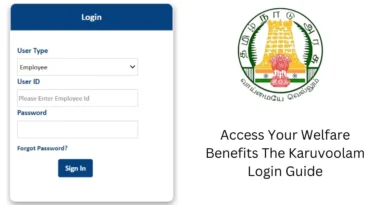Which of These isn‘t a Marketing Tactic to Get You to Use Credit?
Are you curious about Which of These isn‘t a Marketing Tactic to Get You to Use Credit? Dive into this insightful blog post where we uncover common marketing strategies, shed light on potential job scams, explore misleading wallet marketing techniques, delve into personal finance studies, and touch upon vital consumer protection measures. Stay informed and empowered as we navigate through the complex world of credit!
Identifying Job Scams in the Credit Industry
In the competitive world of the credit industry, job scams can often prey on unsuspecting individuals seeking employment opportunities. These scams may promise lucrative positions with attractive benefits but end up being fraudulent schemes designed to exploit job seekers.
One common red flag to watch out for is any job that requires you to pay a fee upfront. Legitimate employers do not typically ask candidates to pay for job applications or training. Be cautious if a potential employer pressures you into making quick decisions without providing clear information about the company and the role.
Another warning sign is receiving unsolicited offers for jobs via email or social media messages. Reputable companies usually post their job openings on official websites or reputable job boards, rather than reaching out directly through unverified channels.
Researching the company thoroughly before proceeding with any application is essential in identifying potential scams. Look for online reviews, check if the company has an official website and contact information, and verify the legitimacy of their business operations.
Legitimate companies will conduct formal interviews either in person or through video conferencing platforms. If a supposed employer only communicates via text messages or refuses to provide detailed information about the position, it could be a sign of a scam.
Protect yourself by trusting your instincts and being wary of any requests for personal financial information such as bank account details or Social Security numbers during the hiring process. Stay vigilant and remember that legitimate opportunities do not require you to compromise your financial security.
Read More: Which Type of Cover Letter Would the Above Excerpt Come From?
Misleading Wallet Marketing in Credit Industry
Have you ever received a flashy advertisement in your mailbox promising unbelievable rewards and cashback offers if you sign up for their credit card? This is what we call “Misleading Wallet Marketing” in the credit industry. These marketing tactics can often lure consumers into signing up for credit cards without fully understanding the terms and conditions.
It’s common to see advertisements highlighting all the benefits of using a particular credit card, but how often do they mention the high-interest rates or annual fees that come with it? Many consumers are enticed by these attractive offers without realizing the potential long-term financial implications.
Some companies may use misleading language or fine print to obscure important details about their credit products. It’s essential for consumers to read through all the information provided carefully before committing to any financial product.
Additionally, some wallet marketing campaigns may target vulnerable demographics such as students or low-income individuals who may not have the financial literacy to understand the risks involved in using credit cards irresponsibly. This can lead to mounting debt and financial hardship down the line.
As consumers, it’s crucial to educate ourselves about responsible borrowing practices and be wary of overly enticing marketing schemes that promise too-good-to-be-true rewards. Always remember that behind those flashy ads lies a contractual agreement with real consequences if not managed wisely. If we talk about real estate marketing, similar principles of transparency and responsibility should guide how properties are promoted to avoid misleading potential buyers or renters.
Being informed and cautious when evaluating credit card offers is key to avoiding falling victim to misleading wallet marketing tactics prevalent in today’s competitive credit industry.
Study on Personal Finance Chapter 4
Are you ready to dive into the world of personal finance? Chapter 4 is where things start to get interesting. This section delves deep into the intricacies of managing your money effectively. It’s like having a personal finance guru guiding you through the maze of financial jargon and concepts.
In this chapter, you’ll learn about budgeting techniques that can help you take control of your finances. From creating a spending plan to setting financial goals, each step is crucial in building a solid foundation for your financial future. Understanding how to prioritize expenses and cut unnecessary costs can make a significant impact on your overall financial well-being.
One key takeaway from this chapter is the importance of saving for emergencies. Having an emergency fund can provide peace of mind during unexpected situations like medical emergencies or job loss. Learning how to set aside funds for unforeseen circumstances is a vital aspect of maintaining financial stability.
Additionally, Chapter 4 explores different investment options available for individuals looking to grow their wealth over time. From stocks and bonds to real estate investments, understanding the basics of investing can open up new opportunities for increasing your net worth.
Moreover, this section also covers topics such as retirement planning and insurance coverage. Planning for retirement may seem daunting, but with proper guidance and knowledge, you can create a roadmap towards a secure financial future.
So grab your notebook and pen because Chapter 4 is about to take you on an enlightening journey towards mastering personal finance!
Read More: Which Type of Image Format is Constructed Using Proportional Formulas Rather Than Pixels?
Consumer Protection in Credit Industry
Consumer protection is a crucial aspect of the credit industry to safeguard individuals from deceptive practices and ensure fair treatment. By understanding common marketing tactics, like job scams, misleading wallet marketing, and personal finance studies, consumers can make informed decisions when it comes to using credit. Remember to stay vigilant, educate yourself on your rights as a consumer, and always be cautious when engaging in financial transactions. By staying informed and aware, you can protect yourself from falling victim to unethical practices in the credit industry. Stay empowered and make wise choices for your financial well-being!



